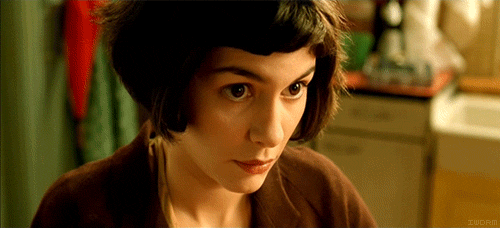The 4 REAL Reasons Your Mother-in-Law Doesn’t Like You
It's complicated.
 weheartit
weheartit My friend Renee recently married the love of her life, Byron. All of Renee’s friends and family members love Byron, but, unfortunately, the same cannot be said of Byron's friends and family.
Specifically, Renee’s mother-in-law doesn’t like her and it’s straining the marriage.
Many women report tension in their relationship with their mother-in-law, a conflict that is associated with increased marital dissatisfaction. This sad situation got me thinking about the stereotypical mother-in-law/daughter-in-law relationship.
Does my mother-in-law hate me? And if not, why not? The actual reasons for this common conflict are somewhat surprising and likely stem from our evolutionary history.
1. You are probably not the partner your in-laws would have chosen for their child.

Tumblr
Why did you choose your romantic partner? Physical attraction? Creativity? Intelligence? A good sense of humor? The traits that we value in our mates are not the same as those our parents value in mates for us.
While we value traits such as physical attractiveness, an exciting personality, or a good sense of humor, our parents are more likely to value characteristics such as a good family background, sound financial prospects, or a similar religious or ethnic background.
Because of these different preferences, we may choose mates for ourselves whom our parents would not have chosen for us. This may lead to an initial dislike on the part of our in-laws, which can be difficult to overcome.
2. You are too attractive.

Giphy
Some of the largest conflicts in mate preferences between adult children and their parents occur on traits associated with physical attractiveness (e.g. good looks, height, physical fitness). According to evolutionary theory, we value those traits in a mate because we want to secure good genes for our future offspring.
Our parents, however, may have good reasons to object to physically attractive partners. Based on evolutionary theory, women who are more attractive than their male partners think more about leaving their relationship and show more interest in alternative partners, and men who are more attractive may be less inclined to invest in or care for future offspring.
3. Mothers of men may unconsciously discourage long-term relationships.

Imgur
I’m sure that if you asked Byron’s mother whether she wants a stable, secure, long-term relationship for her son, she would say yes. But for men, monogamous, long-term relationships may not have been desirable during most of their evolutionary history. According to evolutionary theory, men and women have differing optimal mating strategies to ensure that their genes are perpetuated through future generations.
Strictly evolutionarily speaking, a man’s best mating strategy may be a series of short-term relationships with different women in order to ensure that his genes will be passed on. However, women would not necessarily benefit from the same strategy; a woman’s best strategy may be to find a mate who will provide for her over the long-term and help to raise and care for future offspring.
The interference of a mother-in-law in her son and daughter-in-law’s relationship may reflect a mother’s unconscious desire to help her son “spread his seed.”
However, a mother-in-law to a daughter and son-in-law should try to facilitate the marriage of her daughter so that her son-in-law will remain committed over the long term. In fact, mothers-in-law rate their relationships with their sons-in-law more favorably than their relationships with their daughters-in-law. Moreover, some interference by mothers-in-law may be intended to weaken their sons’ marriages.
4. There's direct competition for resources and attention.

Tumblr
Historical evidence suggests that when there were multiple women within a family reproducing at the same time, their offspring were less likely to survive, perhaps due to a fixed amount of food being divided among more relatives. Mother-in-law conflict may have arisen due to increased competition for resources among women and their daughters-in-law.
Today, this type of conflict is rare, but mothers-in-law may still perceive that they are competing with their daughters-in-law for the time and attention of their sons. Some research suggests that older women are more likely to experience neglect due to poor relationships with their daughters-in-law, and mothers-in-law may worry that they will be excluded by their child and his/her new partner.
But there are ways to reduce conflict and overcome a mother-in-law who doesn't like you. How?

Tumblr
Researchers who study in-law conflict also suggest ways to overcome these difficulties, saying that the best way to deal with these conflicts is to try to convince your in-laws that you are a good mate for their child by showing how much you care for your spouse. Additionally, if you are not yet married, more one-on-one contact with your future in-laws prior to your marriage may facilitate better relationships after the wedding.
However, if in-law conflict persists, you must put your marriage first: Individuals who feel supported by their spouses in their conflicts with their in-laws experience more satisfying marriages.
.......
Madeleine A. Fugère, Ph.D., is a professor of Social Psychology at Eastern Connecticut State University, where she teaches courses in Social Psychology, Statistics, Research Methods, and Attraction and Romantic Relationships. She is the author of The Social Psychology of Attraction and Romantic Relationships (Palgrave Macmillan) as well as numerous journal articles related to attraction and romantic relationships.

